Let’s Chat To A Native Irish Gaelic Speaker
This man grew up in an Irish Gaelic speaking household. He wants you to learn just a few words of Irish - and tells us why!
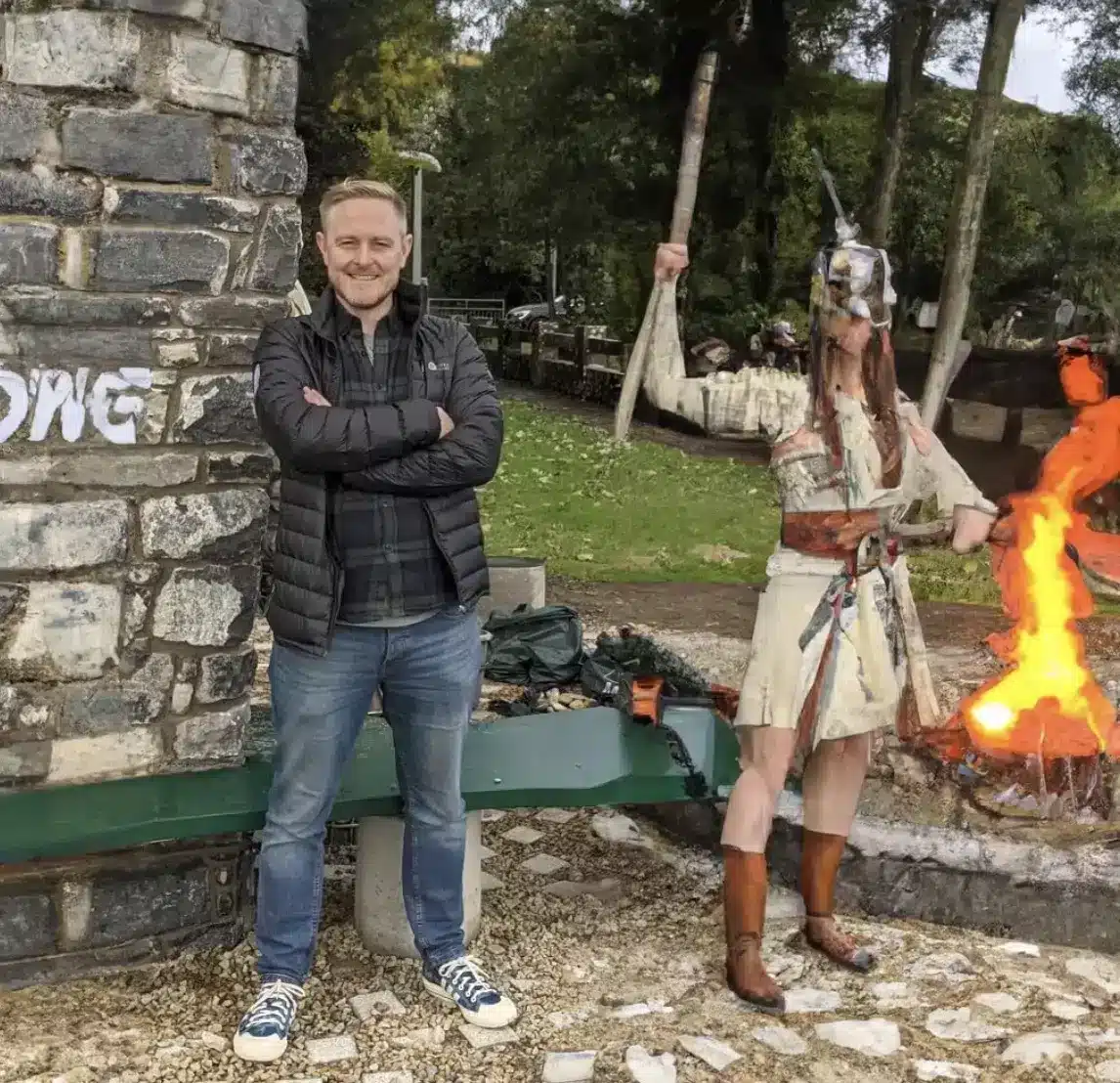
Did you know that many of the Irish placenames and surnames that we use today are direct anglicisations from the original Irish? You could say that the Irish Gaelic language is still in everyday use as we say names like Kennedy (from the Irish “Cinnéide”) or Kelly (from the Irish Ceallaigh) or placenames such as “Baltimore” (from the Irish “Baile an Tigh Mór”) or “Dublin” (from the Irish “Dubh Linn”). There you are – you speak more Irish than you realised!
Earlier this week I had the pleasure of chatting with a person who was brought up in an Irish-speaking household. His name is Eoin Ó Conchúir in Irish – Owen O’Connor in English – and we had a wide-ranging conversation about his own story and the company he founded to help people like you and me learn to speak and use the Irish language. You will find a link to that original podcast at the end of this letter, but in the meantime today’s letter will give you a feel for just some of the topics we discussed.
Mike:
Today folks, we have a guest. He’s not based too far away – about 60 miles up the road from Cork City in Limerick. Eoin is going to chat about his own background growing up as a native Irish speaker and a wonderful company he founded called “Bitesize Irish”. So, Eoin, can you tell us a little bit about yourself?
Eoin:
Thanks Mike. As you say I live in Limerick City to the west of Ireland. We’re at the end of the Shannon estuary, so we do get the winds of the Atlantic into the city. I grew up in Ennis which is the main town in County Clare. It’s traditionally a market town with a lot of Irish culture – specifically Irish music and song. I was brought up there with the Irish language as my first language.
You asked about my surname – it’s “Conchúr” (O’Connor in English). My granddad was born in Charleville in County Cork and I still have some family around there. I also have relatives in Dingle in County Kerry, some in Galway. Although I haven’t done my own family history research!
Mike:
Well, isn’t that typical of an Irish person – not having done their own research!
Eoin:
I was brought up speaking Irish gaelic in the 1980’s. As a kid growing up in Ennis, I did feel embarrassed speaking Irish and it felt out of place. It was an unpleasant feeling a lot of the time.
Mike:
Can you talk more about that?
Eoin:
I attended a Gaelscoil – an Irish language junior school – so I did my 14 or 15 years of education through the Irish language. But definitely just walking down the street, speaking Irish with my family, it did feel out of place.
I contrast that now with my own two boys. I speak Irish to them and as far as I can tell, there’s no sense of worry or shame there for them. They’ll just happily speak Irish. It’s a very different country now.
Mike:
Yeah, and I was brought up maybe a decade before you and as I look back, I realize that at the time it was not so much “shame”, but to us the past was considered boring. The past was the place you wanted to escape, and you wanted to look forward to the future as much as possible to a better place and a better time.
It’s very different now because you’ve got Gael-scoils and Gael-choláistes – they’ve almost become “hip” places to send your kids. Nowadays, I think Irish people are looking back and confidently saying, okay, this is my heritage, I want more of it!
If you go back to the time of the first decline of the Irish language – right back into the 1700s, the Irish language fell out of use because of the sort of pressure you’re talking about. If you wanted to get a job, or have your kids advance in society, you had to drop the Irish language and learn English. That societal pressure is really, really powerful. I think you may have felt a similar pressure yourself back in the ’80s. Thankfully, that is mostly gone today.
So Eoin, you’re talking about growing up in an Irish speaking household. I have two questions for you. One, how hard is it to learn Irish? And two, what would you say to somebody who wants to start to learn the Irish language?
Eoin:
The truth about learning a language is that it’s really hard. I mean, it’s not something that you achieve after two or six months. I see it as a lifelong journey. So, when you have to deal with such a challenge, the only way to keep going is to enjoy the Irish language journey.
I find it very interesting that people get so interested in their Irish heritage that they’ll go so far as learn to speak the Irish language. I think it always surprises people in Ireland when I look at the number of people learning the Irish language outside of Ireland, it’s amazing! There are tens of thousands of people.
Mike:
Really?
Eoin:
Yes, people who are following their curiosity. With my company we’re helping people connect with their curiosity when it comes to the Irish language. We have the motto, “Gaeilge gach lá” (Irish everyday), so it’s like making it part of your every day.
Mike:
You mentioned the fact that there were so many people outside the island of Ireland who are actually fluent in spoken Irish. Why do these people learn Irish? What is it that attracts them?
Eoin:
There are different stories. It’s like this life force that drives your curiosity and it’s something I say – listen to that curiosity, follow it, play with it. I’ve seen plenty of people come to us through Irish traditional music, dance and song. Through song they get interested in the Irish language. I also see many people who are doing Irish family history research making that connection.
Sometimes there’s a sense of loss and they feel the duty to make a reconnection to their ancestral language. We’ve had people who’ve never visited Ireland but done quite well learning the Irish language. Making the language part of your sense of identity, that seems to be a very successful trait of Irish language learners.
Mike:
Can you tell us a little bit more about your company “Bitesize Irish” – why did you start it in the first place?
Eoin:
“Bitesize Irish” is a service for people learning the Irish language online. We’ve customers right across the globe who are starting on this language journey.
We’re facilitating and helping people with their Irish language journey through online courses as well as a community forum.
We started about 13 years ago – and along the way we found that people found a sense of belonging and connection through the language. So, there’s something much deeper to it than just simply learning French or German for the sake of it, if we compare it that way.
Mike:
Yeah, that’s very, very interesting because we found the same thing with the Green Room. People opted into community for one thing e.g. Irish family history research – but stayed for a different thing. Often that sense of connection and community you mention. It’s true to say that, that which attracts you is not necessarily that which sustains you.
So, if somebody’s reading this and they don’t have Irish at the moment, how would you encourage them to start? Where should they go?
Eoin:
Okay, well at Bitesize we have an obvious first step – on our homepage (www.bitesize.irish) there’s a short interactive quiz you can take it in two or three minutes, and we’ll suggest the next step from there. For example, we have an Irish for beginner’s free email list, where people get a gentle introduction to the Irish language.
Mike:
Eoin, it’s been fascinating chatting with you. Thank you very much and slán.
Eoin:
Slán go fóill, Mike.
Thanks very much to Eoin for sharing his story with us. As I mentioned, you can listen to the original podcast where you will hear our longer chat covering lots more topics, we also try out some useful, Irish phrases and listen to three songs in the Irish language, all chosen by Eoin.
You can listen to that podcast episode by clicking here.
Until we chat again next week,
Slán for now – Mike.

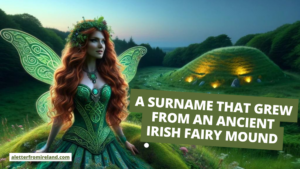
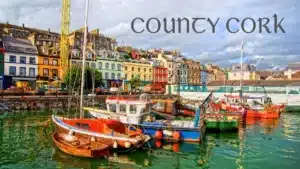
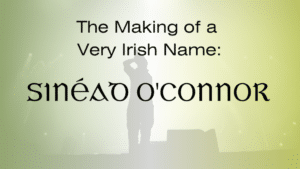
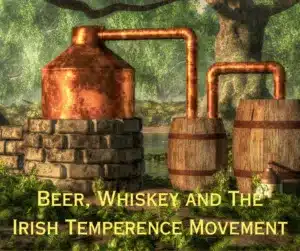
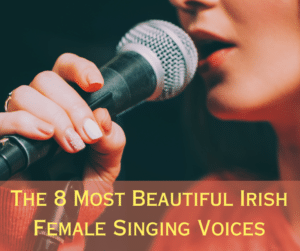
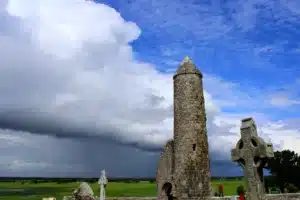
Only Plus Members can comment - Join Now
If you already have an account sign in here.